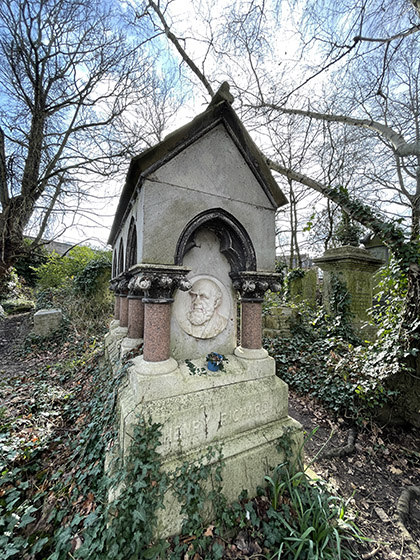HENRY RICHARD
Henry Richard was born on 3 April 1812 in the little market town of Tregaron, near the coast of mid-Wales. The son of a Calvinistic Methodist Minister, he felt a call to the ministry, and, unusually for someone from rural Wales in those days, he went to train at a college in Highbury, north London, and then became a minister at a Congregational church in the Old Kent Road. His pastoral work made him aware of the needs of the poor, and gave him a strong interest in social reform and education for all.
At that time the Napoleonic wars were a living memory, and Henry Richard become more and more concerned with the idea of international peace. In 1848 he became Secretary of the Peace Society, which had been founded in 1816 as a direct result of those wars and to try to stop such war happening again. The Peace Society was not able to stop the Crimean War, but Henry Richard did play a part in the Treaty of Paris which ended the war in 1856, so that a declaration was included saying that in future arbitration would be the best way of settling disputes rather than going to war.
Because of his constant concern for peace, and his travels over Europe organising regular international conferences, or Peace Congresses, as they were known, Henry Richard became known as The Apostle of Peace. From 1868 he was able to continue his zeal for both peace and social reform inside Parliament, after he was elected MP for Merthyr Tydfil in south Wales. Welsh affairs had long been considered of little importance, but Henry Richard voiced the needs of the people of Wales with such strength that whilst still being the Apostle of Peace, he was also known as the Member (of Parliament) for Wales.
Henry Richard died on 20 August 1888, three years after giving up his long leadership of the Peace Society, but whilst still MP. His statue in his birthplace, Tregaron, bears a quotation which sums up his belief that peace is the ultimate responsibility of ordinary people rather than governments:
My hope for the abatement of the war system lies in permanent conviction of the people, rather than the policies of cabinets or the discussions of parliaments.
|

HENRY RICHARD grave in Abney Park cemetery, London.
The tomb in this nonconformist cemetery was erected by public subscription.
|

